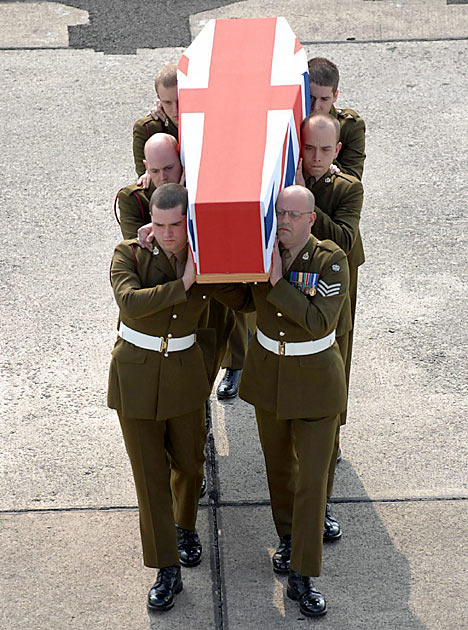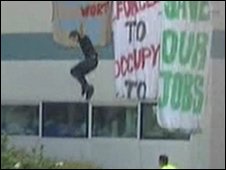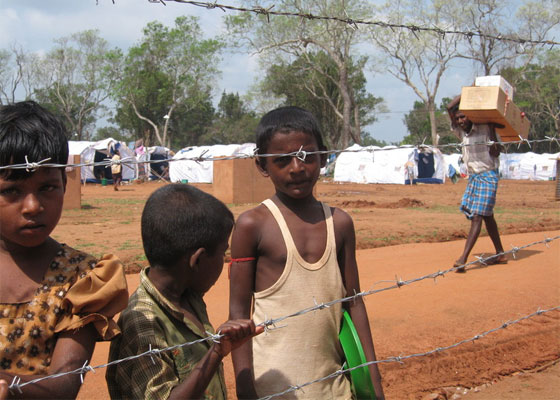This assesment is seconded by Antiwar.com, which warns that "what support the president has managed to maintain on this issue has a soft underbelly highly vulnerable to continued bad news from the battlefield." So, although amongst liberals "this change [criticising Obama's policies] has taken place among a very narrow group of people," a much more significant change is "taking place in the population at large." Accordingly, a poll by the Washington Post and ABC News finds that "a majority of Americans now see the war in Afghanistan as not worth fighting, and just a quarter say more U.S. troops should be sent to the country."
This growth of anti-war sentiment under the Obama administration is still behind that to be found in the UK, where a poll for the Independent at the end of July revealed that "majority of the public believes that the war in Afghanistan is unwinnable and British troops should be pulled out immediately." However, it is certainly a heartening development.
 For too long, the fact that it is Barack Obama at the helm rather than George Bush has rendered the anti-war movement impotent. Not a peep was raised as Obama immediately continued Bush's policies with a troop surge in Afghanistan in January, nor the deployment of another 17,000 troops in mid-February. Now, in the wake of the recent Afghan presidential election, which Human Rights Watch called "one of the most violent days witnessed in Afghanistan in the last eight years," and which saw "the highest level of civilian casualties since the fall of the Taleban in 2002" according to Amnesty International, the anti-war movement is paralysed by its own inaction.
For too long, the fact that it is Barack Obama at the helm rather than George Bush has rendered the anti-war movement impotent. Not a peep was raised as Obama immediately continued Bush's policies with a troop surge in Afghanistan in January, nor the deployment of another 17,000 troops in mid-February. Now, in the wake of the recent Afghan presidential election, which Human Rights Watch called "one of the most violent days witnessed in Afghanistan in the last eight years," and which saw "the highest level of civilian casualties since the fall of the Taleban in 2002" according to Amnesty International, the anti-war movement is paralysed by its own inaction.Elite and establishment groups have involved themselves in a heated "debate" over "strategy." The Chicago Tribune quotes General Stanley McChrystal, commander of US and NATO troops in Afghanistan, as saying that "the situation in Afghanistan is serious, but success is achievable and demands a revised implementation strategy, commitment and resolve, and increased unity of effort." The Times reports that General Sir David Richards, the new head of the British Army, has echoed these sentiments and "is expected to push hard in Whitehall for more British troops."
At the more dovish end of the spectrum, commentators such as Anthony Lloyd in the Times and James Fergusson in the Independent insist that we must be asking "is it worth it?" Fergusson laments that Western troops tried to plant the seed of democracy "in a hurricane" and failed to "secure the elections." "There is an alternative to this recipe for endless war, and that is a negotiated settlement with the Taliban," which needs to be "placed centre stage" in our strategy rather than being "an adjunct." Lloyd, meanwhile, tells us that as "British soldiers are getting killed and wounded in greater numbers in Helmand than ever before," we need to ensure that the war "a reasonable chance of advantageous conclusion." At the extreme of dovishness, hestates that "the presidential election tangles the country into an even greater level of insecurity then I am almost sure that I could no longer believe that the price is worth it or success achievable."
 Meanwhile, the voices challenging the ingrained assumptions defining this "debate" are so low as to be almost silent. It is hard to find those fighting to push through the message that, whatever "strategy" we employ, the war remains fundamentally immoral and an illegal act of aggression, in violation of the Nuremburg Principles (Principle VI), the UN Charter (Article 2, Paragraph 4) and General Assembly Resolution 3314. Nor can one easily find a voice openly declaring that no "advantageous conclusion" justifies the attrocities that have, since the beginning of the war, left 7,589 innocent civilians dead and another 13,660 seriously injured.
Meanwhile, the voices challenging the ingrained assumptions defining this "debate" are so low as to be almost silent. It is hard to find those fighting to push through the message that, whatever "strategy" we employ, the war remains fundamentally immoral and an illegal act of aggression, in violation of the Nuremburg Principles (Principle VI), the UN Charter (Article 2, Paragraph 4) and General Assembly Resolution 3314. Nor can one easily find a voice openly declaring that no "advantageous conclusion" justifies the attrocities that have, since the beginning of the war, left 7,589 innocent civilians dead and another 13,660 seriously injured.Now, however, it appears that this situation may be turning around. If it is to do so, however, then a serious redeployment of efforts and resources is needed. In Dissident Voice, an internet newsletter of the radical left, Ron Jacobs writes of one important tactic which has been underused since Vietnam;
It is the opinion of many anti-warriors that veterans have a key role to play in any organized resistance. After all, it was their presence in the movement against the Vietnam war that shook the conscience of the US public in that war’s later years. However, as Dahr Jamail and his subjects point out again and again, the strength in numbers and the political power of the GI movement against the war in Vietnam was directly related to the strength of the greater antiwar movement. So, despite the commitment of today’s GI and veteran resisters profiled in Jamail’s book, The Will to Resist: Soldiers Who Refuse to Fight in Iraq and Afghanistan, that commitment is limited by the weakness of the antiwar movement as a whole.Such tactics are especially vital in the wake of a resurgent nationalism that has gripped the West, particularly the US and Britain, in recent months. As war veterans and GIs participate in
Jamail highlights the various organizations organizing GI resistance, from the Iraq Veterans Against the War to the group Courage to Resist. He also commits a chapter to each of the primary forms of resistance and reasons for that resistance. He describes instances of individual resistance and the refusal of entire units to carry out missions. He also explores the nature of the sexist culture of the military and the immorality of the wars themselves. One of the most interesting chapters in The Will to Resist is titled “Quarters of Resistance.” It describes the mission and interior of a house in Washington, DC run by a couple veterans. The purpose of the house is to operate as a sort of clearinghouse for the GI resistance movement. At times, the house has provided shelter for veterans and GIs attending antiwar activities in DC. It is also a place that the founder of the house, Geoffrey Millard, calls a “training ground for resistance.” In addition to these quarters, Jamail discusses the beginnings of a coffeehouse movement slowly developing outside major US military bases.
 resistance against the war, their efforts minimised by the lacking strength of the wider movement, bellicose civilians are demonstrating that they "Support Our Troops" by using them as totems to deflect criticism of the wars in which they are sent to die.
resistance against the war, their efforts minimised by the lacking strength of the wider movement, bellicose civilians are demonstrating that they "Support Our Troops" by using them as totems to deflect criticism of the wars in which they are sent to die.Events such as Red Fridays, with supporters wearing red to show their "support" for soldiers, are surrounded with verbose nonsense about "the 'silent' majority" who "thank God" for the "sacrifices" of these young men and women "who are putting their lives on the line everyday for us so we can go to school, work, and enjoy our home without fear or reprisal." The reality is that our freedoms and lives are not at stake in Afghanistan, that those of the Afghans are under continual threat every second that we persist in the country, and that whilst the "silent majority" "thank God," their "unsung heroes" are being slaughtered as fodder in an unjust war. And should they survive, the cheers of those who "still love this country and support our troops" is a preamble to homelessness, depression, and even suicide.
Building up a strong veteran contingent within the anti-war movement is perhaps the only way to challenge the jingoism of movements which peddle the mythos about war and in doing so support not our troops but the aggressive militarism and imperial violence which is destroying them as human beings before it kills them. Moreover, it will end the senseless slaughter of innocent civilians abroad which is the real threat to our ability to "go to school, work, and enjoy our home without fear or reprisal."















